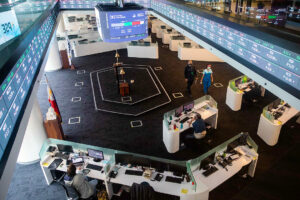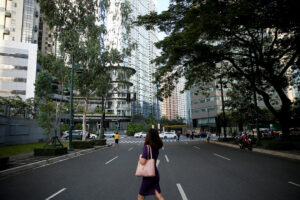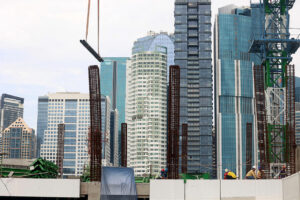Headline inflation likely settled below the 2-4% target band in June, as rising prices of fuel and some food items may have been tempered by lower cost of rice and electricity, the Bangko Sentral ng Pilipinas (BSP) said on Monday.
In a statement, the central bank said inflation may have settled within the 1.1%-1.9% range in June.
If realized, the BSP’s forecast would be much slower than the 3.7% inflation print in June 2024.
At the upper end of the BSP forecast, inflation likely picked up from 1.3% in May.
On the other hand, the low end of the forecast showed June inflation may have been the slowest in 57 months or since the 0.6% seen in October 2019.
A BusinessWorld poll of 17 analysts conducted last week yielded a median estimate of 1.5% for the June consumer price index (CPI).
June inflation data will be released on Friday (July 4).
“Upward price pressures for (June) are likely to be driven by higher meat and vegetable prices, elevated oil prices, and the depreciation of the peso,” the BSP said in a statement.
In June, pump price adjustments stood at a net increase of PHP 6.30 a liter for gasoline, PHP 8.25 a liter for diesel and PHP 6.50 a liter for kerosene.
The peso closed at PHP 56.33 per dollar at the end of June, depreciating by 58.5 centavos from the PHP 55.745 finish at end-May.
“These pressures, however, could be partially offset by lower prices of rice, fish, and fruits, as well as lower electricity rates,” the central bank said.
Manila Electric Co. (Meralco) cut the overall rate by PHP 0.1076 per kilowatt-hour (kWh) to PHP 12.1552 per kWh in June from PHP 12.2628 per kWh in May.
The BSP noted the drop in rice prices in June, which marked the fourth straight month of decline this year.
The Philippine Statistics Authority said prices of rice declined further with regular milled rice averaging PHP 42.77 per kilo in June from the PHP 43.32 per kilo in mid-May.
“Going forward, the BSP remains committed to safeguarding price stability by ensuring that monetary policy settings are conducive to sustainable economic growth and employment,” it said.
At its June 19 meeting, the central bank delivered a second straight 25-basis-point (bp) cut, bringing its policy rate to 5.25% amid a benign inflation outlook and slowing economic growth.
BSP Governor Eli M. Remolona, Jr. also signaled they could deliver one more 25-bp cut this year.
Meanwhile, analysts said non-rice food commodities likely contributed to slightly faster June inflation.
“I forecast inflation to be at 1.5% this June. Driven by higher oil prices as well as some food items such as livestock, fish, and some vegetable items. However, this was partly offset by lower electricity prices,”Oikonomia Advisory and Research, Inc. economist Reinielle Matt M. Erece said.
Meanwhile, Security Bank Corp. Vice-President and Research Division Head Angelo B. Taningco said prices of meat, fish, fruits, housing rentals, and electricity costs are some of the factors that drove up consumer prices in June.
The PSA reported that retail price of dressed chicken further rose to PHP 214.49 per kilogram in the first half of June from PHP 212.52 in the second half of May.
“[This] was somewhat offset by deflationary pressures from rice,” Mr. Taningco said.
The BSP last month lowered its baseline forecast for inflation to 1.6% for this year from 2.4%. It also expects inflation to settle at 3.4% for 2026 and 3.3% for 2027. — Aubrey Rose A. Inosante, Reporter







 DOWNLOAD
DOWNLOAD

















